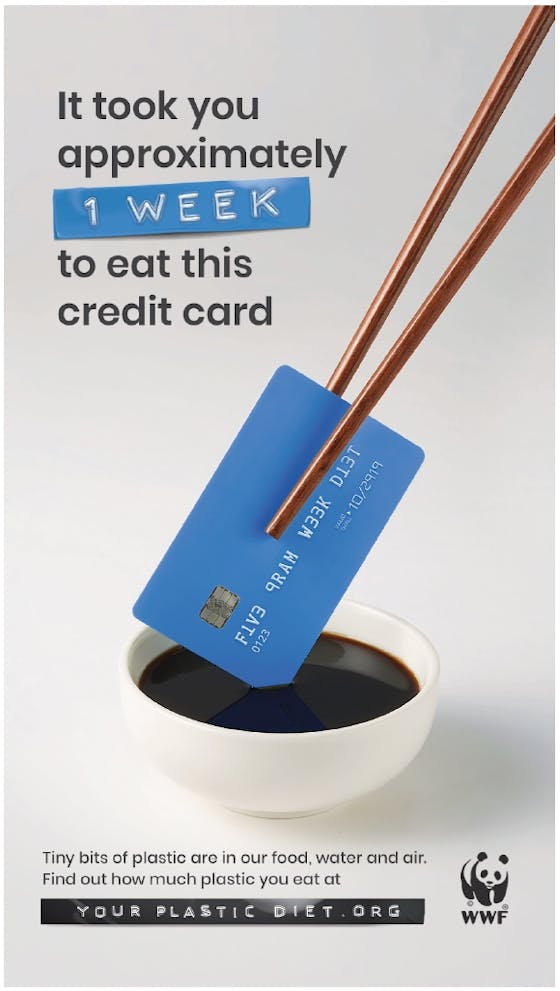People are eating approximately 5 grams of plastic every week, the equivalent weight of a credit card, according to a new global study by World Wide Fund for Nature (WWF) Singapore.
To continue watching, subscribe to Eco‑Business.
There's something for everyone. We offer a range of subscription plans.
- Access our stories and receive our Insights Weekly newsletter with the free EB Member plan.
- Unlock unlimited access to our content and archive with EB Circle.
- Publish your content with EB Premium.
Drinking water is the leading source of plastic ingestion in humans, the study found. A 500 millilitre bottle of drinking water contains approximately 1,759 tiny plastic fibres. Other key sources of plastic ingestion include shellfish, beer and salt.
Invisible to the naked eye, microplastics do not biodegrade and persist in the marine environment. Microplastics are tiny particles that are directly released into the environment, through microbeads found in personal care products and the washing of polyester fabrics. In addition, they can also be derived from larger pieces of marine trash, such as plastic bags, that break down in the ocean.

People are eating the equivalent weight of a credit card every week, according to a new study by WWF Singapore. Image: WWF SIngapore.
At present, not much is understood about how ingesting plastic can affect human health. However, preliminary studies suggest that these substances cannot be broken down by the human body.
At the same time, 8 million tonnes more plastic waste enter the oceans every year, according to UN Environment. Increasing production of plastic materials, poor recycling infrastructure and waste mismanagement, particularly in developing Asia, are turning our oceans into plastic dumping grounds.
“In order to tackle the plastic crisis, we need urgent action at the government, business and consumer levels, and a global treaty with global targets to address plastic pollution,” said Marco Lambertini, WWF International’s director general.
A global petition, launched by WWF in February this year, to push for a legally binding treaty to address plastic pollution through international cooperation has garnered over 650,000 signatures. Proposed measures include setting quantifiable national targets to reduce and manage plastic waste, legislating extended producer responsibility to hold businesses accountable for the plastics they produce and supporting emerging research on the health effects of plastics and microplastics.
WWF’s campaign website, yourplasticdiet.org, reveals how much microplastics is in your food and how you can participate in the fight against plastic pollution.








